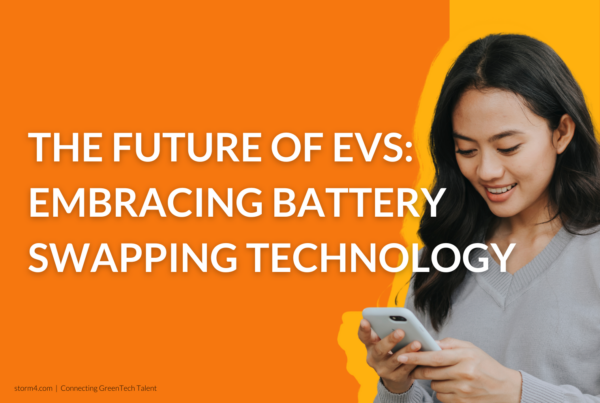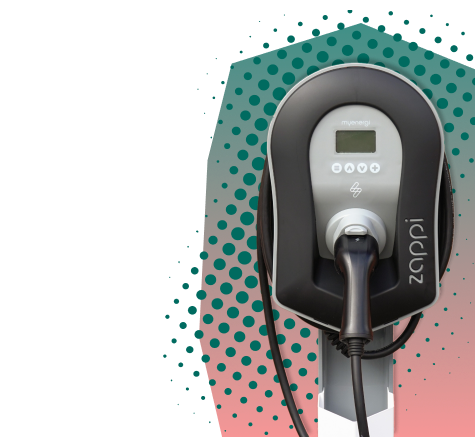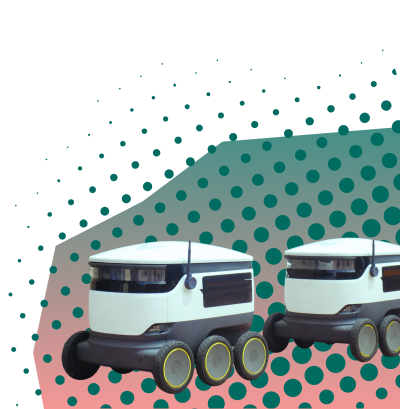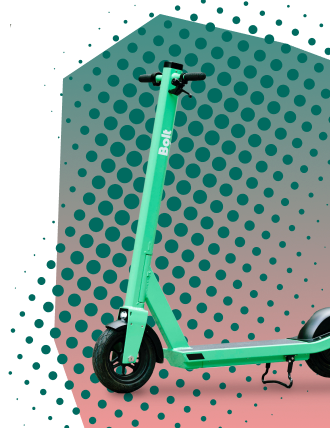Sustainability is permeating social, political and business agendas around the world. More and more tech brands are taking an active role in shaping a more sustainable future, gaining a powerful reputation for their commitment to the environment and ability to inspire more sustainable practices across industries.
The rise of environmentally conscious companies is partly due to changing preferences of consumers. People are increasingly becoming aware of the human impact on the environment, with 82% of customers researching how sustainable a business is before purchasing, and 66% of people happily paying more to environmentally friendly businesses. Scientists are also responsible for this trend, educating and actioning efforts to tackle the threat of the climate crisis.
Our role as GreenTech recruiters means we are passionate about partnering with businesses who are championing sustainability. In light of this, we have made a list of the top performing tech brands with a green agenda.
Top Emerging Sustainable-Tech Brands Right Now
Existing to help farmers, FYTO allows for more sustainable production of animal feed and other agricultural products. Their patent push-button protein platform completely reinvents feed and forage crops. The aquatic plants grow 10-30 times more protein per acre than traditional crops, grown in engineered ponds and cultivated and harvested using automation.
The technology is currently being trialled in California, which will allow for a stable supply all year round at a reasonable price.
“Nutrition is very important for dairy cows and directly impacts health, productivity, profitability, and sustainability. But it can also be costly. What if we can reinvent the way we grow and feed and forage crops. In other words, can we produce feed and forage crops for dairy cows with less water, less labour, less fertilizer, less land and fewer headaches?” Jason Prapas, CEO & Founder.
Targeting industries such as steel manufacturing, oil refining and chemical production, LanzaTech applies circular principles by converting carbon-rich wastes and residues into valuable fuel and chemical products using its patented microbe technology.
Mirroring the brewery process, the company uses microbes and waste gases to make fuels and chemicals instead of sugars and yeast to make beer. The process captures and recycles waste gases before they are emitted as greenhouse gases, reducing pollutants and particulate emissions by over 85%, while simultaneously driving economic growth.
A recent partnership with Unilever and India Glycols has commercialized the first cleaning product containing a surfactant made from captured carbon. Using biotechnology and a newly-configured supply chain between the three companies, the product launch purposely coincided with World Earth Day on 22nd April. Jennifer Holmgren, CEO of LanzaTech, commented: “Our planet is running out of time and how we treat carbon requires urgent revision. By working with Unilever and IGL we can turn waste carbon into an opportunity, keeping fossil fuels in the ground and enabling new circular processes to make the products we use every day.”
With a mission to passionately lead the textile industry to a lean and clean future, DyeCoo’s CO₂ technology is the world’s first 100% water-free and process chemical-free textile processing solution. Based in the Netherlands, the technology uses highly pressurised “supercritical” carbon dioxide that dissolves the dye and carries it deep into the fabric. The carbon dioxide then evaporates and is recycled and used again. The process takes half the time and uses less energy at a lower cost.
With the tech brand already partnered with leaders like Nike and IKEA, the process has been proven to be scalable and therefore could be adopted worldwide to significantly reduce the use of harsh chemicals in the textile industry.

Fuergy
New to the scene, the Slovak startup plans to turn household renewable energy-sharing into a reality. Using their AI platform, home users who generate surplus solar or wind power can sell it directly to other community members, instead of feeding it back into the grid. This way, consumers bypass high processing fees and buyers can purchase shared energy at cheaper rates. The distributed energy model significantly lowers energy costs by up to 50%.
Parallel to the Airbnb model, the sharing energy economy is a new concept, something that once renewables are no longer a threat to the power grid suppliers will be more open to adopting.
“In combination with weather forecasting and analysing consumer habits, the system is able to adjust heating settings—so no energy is wasted for heating an empty house at the beginning of a sunny day”, says Branislav Safarik, COO at Fuergy.
The next generation of ride-sharing has gained momentum in Canada. Not only do Facedrive offer customers the choice of riding an EV, hybrid, or a conventional car, but they also plant a tree with every ride. In the last 4 months, 3,500 trees have been planted.
Despite being a green alternative in the fossil-fuel driven ride-sharing sector, the competition is aggressive, with Uber and Lyft also starting to invest in EV ride-share options.
The global pandemic pushed Facedrive to branch out beyond their ride-sharing origin, adding verticals of food delivery, HealthTech services and an e-commerce platform, all with the same sustainable mandate.

Another emerging startup related to textile is Ambercycle. Ambercycle decided to tackle the issue of textile waste. The company’s goal is to convert the world’s end-of-life textiles, such as loose scraps or worn-out shirts into a centralized ecosystem. Their network of partners enables local and global designers and apparel brands to redirect their unusable materials back into the supply chain. Founded in 2015, and based in Los Angeles, the company closed a $21.6 million Series A funding led by companies such as H&M CO:LAB, KIRKBI, Temasek, BESTSELLER’s Invest FWD, and Zalando.
Environmental reports say that over 20 billion garments are discarded annually. Ambercycle wants to tackle this issue, with the goal of building circularity for the fashion industry.
Shay Sethi, the Co-Founder and CEO of Ambercycle said: “The transition to circularity in fashion is inevitable. We are building an ecosystem in which materials can exist in harmony with humans and the environment. Our breakthrough molecular regeneration process enables a clear vision for circularity, in which fashion can flow in and out of our lives. Not only will this improve the sustainability performance of the items in our closets, but it builds a new way for us to interact with our materials.”
Founded in 2018 and based in the US, Ecobot revolutionizes the environmental regulatory industry. The company merges decades of environmental consulting with enterprise software development, to bring expertise forward and create technology that could be of help to anyone who does environmental fieldwork. Ecobot automizes the data-gathering processes and allows its customers to run automatic calculations and look-up tools necessary for real-time decisions. According to one of the co-founders, the app allows 30 hours of work to be reduced to 45 minutes.
As said by Jeremy Schewe, the co-founder and Chief Scientific Officer of Ecobot: “We equip customers with better tools to gather data which provide automatic calculations and look-up tools needed to make decisions in real-time, in the field. This eliminates what used to be hours of manual calculations and multiple touches of the same data, usually done when scientists returned to their offices. Hours saved can add up significantly during a large project or across hundreds of consultants at any given firm.”
Hobeen is a Spanish app developer that aims at helping institutions and companies with energy savings and sustainable solutions for their clients, employees, and citizens. They deploy gamification techniques that incentivize saving energy and encourage new habits related to it. Hobeen allows to track down electricity, gas, and water in one space for easy and fast access. It also allows the customers to exchange seeds for gifts and discounts on ecological products and services.
There has been a lot of companies working in energy-data management, but Hobeen’s product allows enterprises to customize the app with their branding and help their customers access and manage data in one space.
Investing in a sustainable strategy is not only ethical but profitable too, and with shifting government policies and rising pressure from consumers, it’s a sensible step to take for tech brands around the world.
We work collaboratively with businesses that are committed to contributing towards a greener future. Whether that is scaling your GreenTech team or looking for advice on how to do so, get in touch to speak with our specialist consultants.













